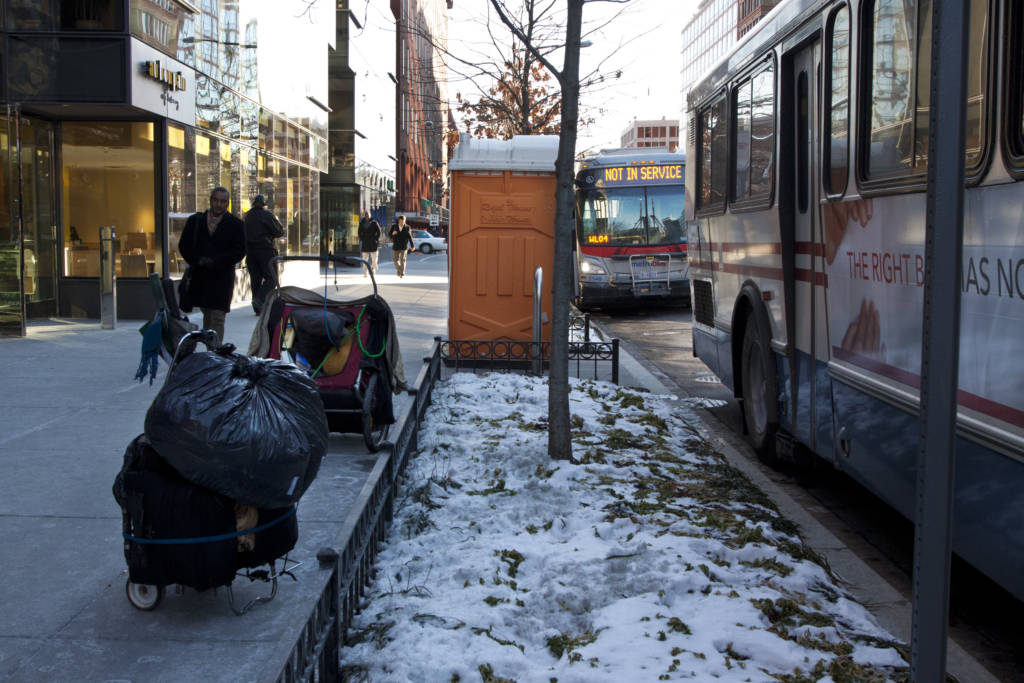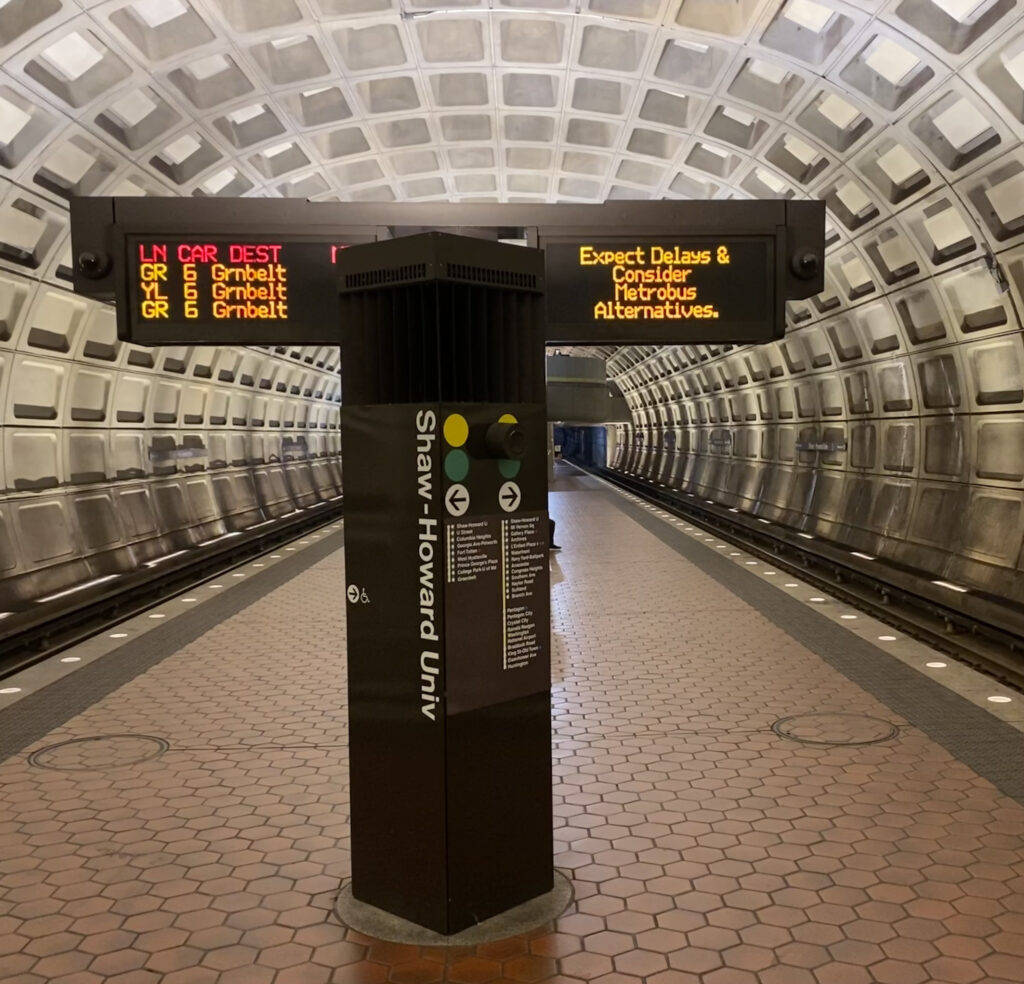The wind is deadly. The sky is black and the temperature is plummeting toward single digits. The lighted sign on the idling Metrobus parked at the snowy curb outside the West End library reads “Out of Service,” but the bus driver, Gary Thomas, bundled in a hat, coat and reflective vest, invites a weather-beaten passenger to climb aboard.
If you ask Thomas, the bus is not so much out of service as it is serving a higher purpose. It is one of the designated “warming buses” that have been deployed around the city in recent days to protect homeless people from the frigid weather.
The vehicles have been made available by the Washington Metropolitan Area Transit Authority, working in coordination with the District’s Homeland Security and Emergency Management Agency. And Thomas, for one is grateful to be part of the effort to get a few fellow humans out of the cold.
“This is my brother, my sister, my father, my mother,” he says, ushering another passenger through the door.
The warming bus initiative is part of a larger effort headed by Mayor Vincent Gray to get homeless people to safety during this extremely bitter season, city officials explain.
“Heavy winds and 15 degrees with the wind chill. When we hit those extreme conditions we know the vulnerability and chance of death is higher,” says David Berns, who heads the city Department of Human Services.
City emergency shelters are open as usual, offering more than 1,300 beds for single men and more than 400 for single women. In addition, more than 600 homeless families are currently placed in motels and in a former hospital.
Yet there are some homeless people who avoid shelters. Some worry they will lose their belongings. Others say they fear the other occupants or the facilities themselves. Some want help but don’t know where to find it or whom to trust. Last year’s annual homeless count identified more than 500 individuals living in alleys, parks, under bridges and in doorways throughout the city. To some of these street dwellers, the warming buses have provided temporary, low-barrier refuge. According to Berns, on a recent night 130 people stayed on the warming buses.
Food and water are available on the buses. Portable restrooms are placed nearby. Locations are subject to change but have included Foggy Bottom, Union Station and McPherson Square.
In addition to the warming buses, several neighborhood recreation centers have been turned into emergency warming centers during recent periods of intense cold. Outreach workers have been sent outside to urge people to use these places of safety.
According to a statement from the mayor’s office, police and officials from the city’s Department of Behavioral Health are authorized under city law to “transport those homeless individuals with a mental illness who are not able to protect themselves from the extreme cold” into mental or emergency facilities for evaluation.
Not every homeless person has appreciated the efforts. James Mitchell, who camps near Dupont Circle, says he was angry when a policeman told him to get on a warming bus on one recent frigid night.
“I grew up camping. I have two sleeping bags, two blankets and tarp,” says Mitchell, who resented the intrusion. “I can understand them trying to talk to someone who is really mentally ill,” he adds. “I was pissed.”
At the West End Library on this night, the warming bus draws praise.
“It’s cozy,” says a man who does not wish to give his name.
“I think it’s a great idea,” agrees another passenger, Bill McNeal. “I was there last night. It’s nice and comfortable.”
He says he enjoyed the food as well as the warmth.
“We had tuna and macaroni. Then we had salami and cheese sandwiches. Then we had fruit and pastries and Welch’s grape juice. It was very good.”
Thomas, the driver, says the time he has spent on the bus has flown by.
“These guys have been more than appreciative,” he says. “They humble me.”
Yet he has been left with an unsettling sense of a larger dilemma to which he is unable to respond. Out in the dark, there are many people who will not fit on his bus. Tomorrow there may be more.
“I’m just a little guy, trying to solve a bigger problem,” he says. “We’ve got a deep-rooted problem we need to address.”






